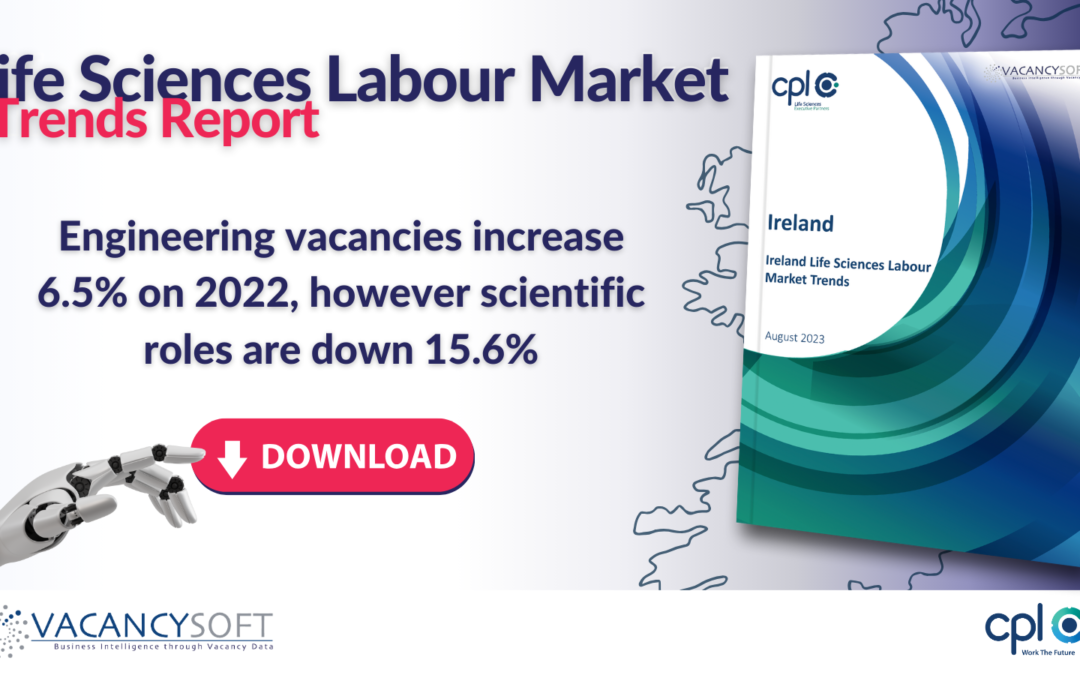
As the markets have normalised post-pandemic, so the job flow has slowed for scientists. In contrast, engineering vacancies are on the rise, with an estimated 1577 openings in 2023, marking a 6.5% increase from 2022 according to Life Sciences specialist recruiters CPL, and labour market data analysts Vacancysoft.

Within the EU-27, the month of March 2023 witnessed the highest monthly total this year with 461 published Procurement/Supply Chain jobs. However, Q2 has seen a marked dip since then, hence the EU-27 countries are expected to undergo a decrease of 11.8% in 2023, according to Life Sciences specialists CPL, and labour market data analysts Vacancysoft.

According to the latest life sciences report by CPL and labour market data analysts Vacancysoft, Pharma companies in the UK are still experiencing talent shortages in areas like digital, data analytics, and environmental, social, and governance (ESG), despite estimates showing a projected 40% year-on-year decrease in executive vacancies in 2023. Download your copy to take a more in-depth look into hiring activity within Life Sciences!

How are vacancies for medical affairs faring in England and Wales? Which sectors had the best performance? Which regions have the highest activity? What are the skills most in-demand and which are the top firms hiring talent? Download our new report to find out.






